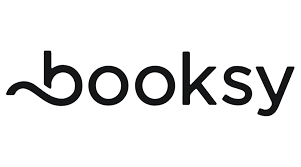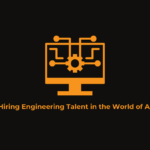Welcome to the Great Lakes Hypergrowth Talent Roadmap, where we explore all the aspects of building high-growth teams.
This is one of the most essential and existential questions that all hypergrowth startups face: when building your team, especially at the earliest stages, should you be hiring for experience or potential.
Before we discuss our opinion on where startups should spend their time and strategies for tackling this issue, let’s discuss what those two terms even mean, at least in this context.
Experience – you are hiring for someone who has already done the specific task that the position you are hiring for performs regularly. This person hopefully also has done this task within the confines of a similar (or even EXACT SAME) industry as you are currently actively pursuing. They have dealt with the same customers, consumers, regulations, market forces, obstacles, hurdles, and issues as your current company.
Pros:
- You spend less time training an employee because they already know what they are doing. If this person is a good fit, that means the impact they can provide should be more immediate
- You have reduced your risk for the task at hand to get accomplished. If someone has done it before, it stands to reason that they should be able to do it again.
- They have the ability to “see around corners” – can help the Company predict what problems will arise next because they have already experienced them firsthand.
Cons:
- These folks can drive a hard bargain. If someone has done something and they know how it’s done, they can drive a higher asking price for their salary.
- Potential lack of adaptability can surface, particularly for early stage startups because the reality is that the task being performed by this person has likely NEVER REALLY BEEN DONE BEFORE. That’s the thing about startups – if you are doing it right, nobody has done this thing, provided this service, solved this problem, the way you are. And so, how could someone have purely identical experience in doing something that’s never been done before? Neil Armstrong wasn’t selected to go to the Moon because he had already been there. He had other qualifications.
Potential – you are hiring someone who has not done the above, but something about their background or profile leads you to believe that they can accomplish the specific task required for the role you are hiring. Based on a thesis you have developed (i.e. you think former college athletes make great salespeople, or the best junior product managers have spent some years writing code, etc.), you hire people who fit into some mold beyond just “has this person done this task (or set of tasks) before?”
Pros
- Higher adaptability. If someone hasn’t done the thing that you are asking them to do, in theory they don’t bring in any extra baggage. This allows for them to maybe come up with more innovative ways to get something done and don’t bump up against the “well that’s just how it’s always been done” syndrome.
- Less expensive. This person tends to drive a smaller price tag. They have less years under their belt from an experience
Cons
- There are a lot of jobs and skills that just need experience and reps in order to get good work output from an employee. If someone hasn’t done something before, even if they are extremely high potential, there is a chance that they will never be able to do that thing. Or potentially worse, for startups, they will take TOO LONG figuring out how to do something. This can be poisonous because it will feel like progress (good!) but at the expense of time (VERY VERY BAD!).
The false narrative is that hiring for potential means you get to broaden your talent pool, compared to hiring for experience. While this might be technically true, I think it’s a little off base in practicality. Regardless of what your hiring strategy involves, the thing to keep in mind is that you need to have a COMPETENCY STRATEGY – or hiring scorecard – in place. A competency strategy means you have sat down and thought about what is actually required from this role and what the person’s who can accomplish those tasks background will look like.
If your strategy is to hire for potential, you need to have a scorecard that makes sense. It’s not enough to just say “well my gut tells me this person has a lot of potential” because the reality is that “potential” is a meaningless term. As a result, as you get more specific in what a high potential candidate means for a specific role (i.e. believing that former customer success reps will make great sales reps, or that former investment banking analysts will make great ops personnel, etc.) you will eventually continue to narrow down that pool.
That need for a competency strategy actually cuts both ways. If you are hiring for experience, that rubric is pretty straightforward: find someone who has done it before. The tricky part is the “it” in “done it before”. What exactly are you asking from this person? Just because someone has sold healthcare software in the past doesn’t mean they are going to be a good first sales hire at a healthcare technology startup. The set of circumstances in which that person sold that software can be just as important. Your thesis then needs to involve the environment and challenges that person has overcome previously, not just the task being done.
Plus, you have to account for the fact that your thesis could be totally wrong. Some theses are tried and true, but for most startups, you have to experiment constantly and constantly refine your hiring hypotheses.
A big reason for that is because, as previously mentioned, if you are doing this startup thing right, you are likely not running a straightforward playbook. In fact, you are doing something radically different that will shake up your end market. As a result of this unique variable, most formulas need to be thoroughly reexamined. Of course, if you are running a startup, it’s extremely hard to take the time to reevaluate your processes from top to bottom all of the time. But making bad hires and not remedying that mistake quickly can completely blow up your time.
So when trying to figure out to weigh how experienced or how high potential of a candidate to hire, startups should ask themselves the following questions:
- What tasks am I expecting this person to complete? What unique challenges will they likely face?
- What responsibilities will they have over the next 6-12 months? What does success look like?
- How different is the job I am asking someone to perform from the job other players in this space are already doing? What are the top 10 similarities and differences between our company and the incumbents (or like-players)?
- How confident am I in my talent thesis? How can I constantly check and improve this thesis?
- What steps am I taking to make sure that my hiring process is successful or not?
- Am I capable of identifying an underperformer before it’s too late? What is “too late” in this context?
- What ROI could I expect on the cash burned on these employees if it was spent elsewhere – what is the opportunity cost of this hire?
- Can I realistically afford this person and still accomplish my goals? Can I accomplish my goals without this person?
REFINERY’S PERSPECTIVE: It is Refinery’s belief that the ratio of experienced employees vs. high potential employees should lean in favor of experienced employees. Experienced employees, especially at the earliest stages, can help see around corners and prevent a company from spinning its wheels – one of the biggest killers of startups. Spin your wheels -> run out of cash. Sometimes it can be that simple.
However, there should definitely be a healthy mix of both. High potential employees bring tons of benefits and they are essential ingredients to any startup’s success. They can be motors that provide a lot of the energy around the grueling nature of building a startup. While most of the work at a startup can be pretty arduous – high potential employees can frequently display the grit required to get things across the finish line that require plain old dedication and determination.
The high potential employees who log a lot of hours in a company, achieve internal successes, and build up skills are also great internal promotion candidates. It can be the case where high potential employees actually transform into experienced employees. When the time comes to continue expanding a team (or reduce staff to conserve burn), high potential employees are great resources to tap into. They can also still be less expensive on several fronts – it takes less time to train them at this point since they already have internal company experience, it costs less than recruiting an experienced candidate, and they are likely already compensated in an equity capacity effectively since they were earlier employees.
Again, your entire company can’t all be made up of high potential employees. There are tons of examples of world class hypergrowth companies that were built by inexperienced founders who brought on more experienced, steady hands to help them build. You need a mix of both. And, of course, if you find someone who is great, make sure you hire them. But also make sure you have a strong definition of what “great” actually means.
Stealth Job Opportunities
Reach out to Peter Schmidt, peter@refinery.com, if you would like to learn more about these positions.
1. Go-to Market Leader
Midwest Located
Join a rapidly growing, AI-native sales enablement and customer advocacy platform. If you are passionate about driving growth in a cutting-edge industry this is a great opportunity.
2. Go-to Market Talent
Cincinnati, OH
A healthcare data and AI company is looking for go-to market help with selling into health systems and nursing care facilities.
3. Customer Success Manager
Columbus, OH
A fintech innovator who is solving revenue recognition challenges. Currently experiencing insane inbound traffic and need a go-to market person with customer success experience to help execute on their growing pipeline.
Hypergrowth Job Opportunities
From a curated list of startups and opportunities from our network.

Senior Customer Success Manager at Axuall
Cleveland, OH
Drive client growth and retention by aligning products with customer goals, increasing adoption, and identifying new business opportunities to meet strategic milestones.

Head of Digital Marketing at Booksy
Remote – HQ Chicago, IL
Lead user growth, engagement, and ROI across digital channels, requiring expertise in performance marketing, SEO, analytics, and team leadership within a tech or SaaS environment.

Senior Project Manager (Marketing) at Fooji
Lexington, KY
Execute complex marketing campaigns for Fortune 500 brands, managing timelines, budgets, and stakeholder relationships while coordinating cross-functional teams to deliver high-impact results.

Sr. Director of Product (Logistics Marketplace) at Frayt
Dallas, TX
Define and drive product strategy, aligning it with company goals and market needs, while leading cross-functional teams, prioritizing features, analyzing data, and ensuring alignment with stakeholders and the executive team.
Subscribe to receive the Hypergrowth Talent Roadmap every other Tuesday!



